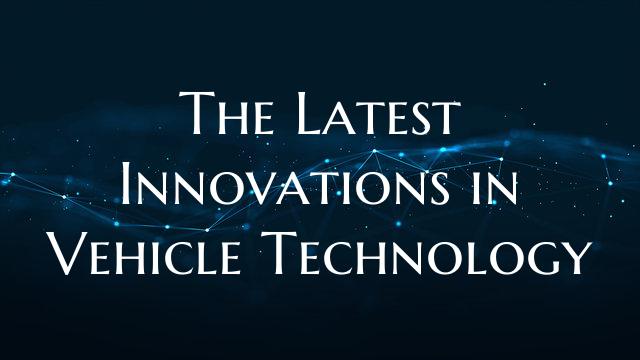The Latest Innovations in Vehicle Technology
In recent years, the automotive industry has seen a rapid evolution in technology, resulting in vehicles that are smarter, safer, and more efficient than ever before. From autonomous driving capabilities to advanced connectivity features, the latest innovations in vehicle technology are shaping the future of transportation. Let's explore some of the cutting-edge advancements that are revolutionizing the way we drive.
1. Autonomous Driving: One of the most significant technological advancements in the automotive industry is the development of autonomous driving technology. Companies like Tesla, Waymo, and Ford are leading the way in creating self-driving vehicles that have the potential to transform the way we commute. These vehicles use a combination of sensors, cameras, and artificial intelligence to navigate roads, detect obstacles, and make split-second decisions to ensure passenger safety.
2. Connectivity Features: Modern vehicles are increasingly equipped with advanced connectivity features that enhance the driving experience. From in-car Wi-Fi and Bluetooth connectivity to smartphone integration systems like Apple CarPlay and Android Auto, drivers can stay connected and entertained while on the road. Integrated infotainment systems also provide real-time traffic updates, weather information, and personalized recommendations based on driving habits.
3. Electric and Hybrid Technologies: With a growing emphasis on sustainability and reducing carbon emissions, electric and hybrid vehicles have become increasingly popular in the automotive market. Companies like Tesla, Nissan, and Chevrolet have developed electric cars that offer impressive driving ranges and fast-charging capabilities. Hybrid vehicles, which combine electric motors with traditional combustion engines, provide improved fuel efficiency without compromising performance.
4. Advanced Driver Assistance Systems (ADAS): ADAS technologies are designed to enhance driver safety and convenience by providing features such as adaptive cruise control, lane-keeping assistance, automatic emergency braking, and blind-spot monitoring. These systems help prevent accidents, reduce driver fatigue, and improve overall road safety.
5. Vehicle-to-Everything (V2X) Communication: V2X technology enables vehicles to communicate with each other and with roadside infrastructure, creating a connected ecosystem that enhances safety and efficiency on the road. Through V2X communication, vehicles can receive real-time information about road conditions, traffic congestion, and potential hazards, allowing for smoother traffic flow and improved decision-making by both drivers and autonomous systems.
Overall, the latest innovations in vehicle technology are driving towards a future where transportation is safer, more sustainable, and more connected than ever before. As technology continues to evolve, we can expect to see even more exciting developments that will shape the way we travel in the years to come.

